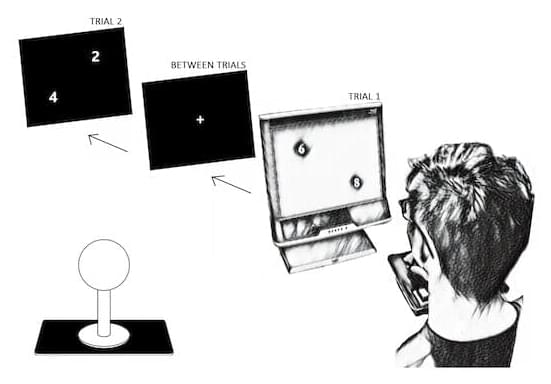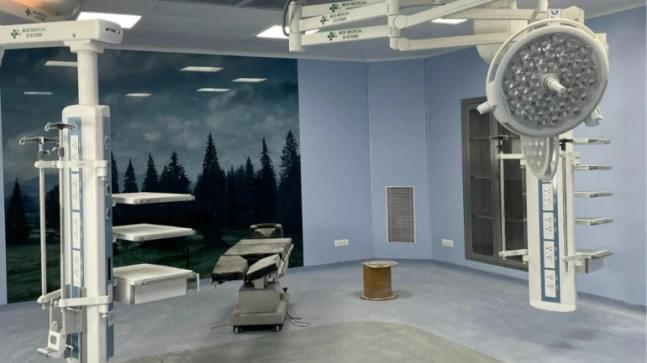On November 15, 2018, BCG GAMMA and Brahe Education Foundation hosted a lecture with Max Tegmark who spoke of Life 3.0 and the future of Artificial Intelligence including both its possibilities and also risks. What kind of future do we want to live in and how can we steer AI towards it? Max Tegmark is a Professor of Physics at MIT, co-founder of the Future of Life Institute, and Scientific Director of the Foundational Questions Institute.
Category: education – Page 109

No VR or AR: A new pocket-size eyeglass will be just big screen experience in your eyes
You need to wait till 2023 to get them though.
Lenovo has unveiled its T1 Glasses at its Tech Life 2022 event and promises to place a full HD video-watching experience right inside your pockets, a company press release.
Mobile computing devices have exploded in the past few years as gaming has become more intense, and various video streaming platforms have gathered steam. The computing power of smartphones and tablets has increased manifold. Whether you want to ambush other people in an online shooting game or sit back and watch a documentary in high-definition, a device in your pocket can help you do that with ease.
However, what is missing is the large screen experience; with the T1 Glasses, Lenovo wants to deliver just that.
Elon Musk’s New Nuclear Rocket SHOCKS The Entire Space Industry!
Power is life, whether in the void or on another planet far from Earth.
Therefore, the use of nuclear energy and a constant, powerful supply of.
electricity has the potential to speed up, improve, and lower the cost of.
interplanetary travel.
The NASA-supported SpaceX nuclear rocket technology may be the way of.
the future for space travel. It might significantly shorten journey times to far
off locations, improve launch flexibility, and make astronaut safety.
throughout spaceflight. Additionally, it might reduce the likelihood of hostile.
attacks against satellites.
What is this space technology, and how does it work?
Join us as we explore how SpaceX’s insane new nuclear Starship shocked the.
entire space industry.
Disclaimer Fair Use:
1. The videos have no negative impact on the original works.
2. The videos we make are used for educational purposes.
3. The videos are transformative in nature.
4. We use only the audio component and tiny pieces of video footage, only if it’s necessary.
DISCLAIMER:
Our channel is purely made for entertainment purposes, based on facts, rumors, and fiction.
Copyright Disclaimer under section 107 of the Copyright Act 1976, allowance is made for “fair use” for purposes such as criticism, comment, news reporting, teaching, scholarship, education, and research. Fair use is a use permitted by copyright statutes that might otherwise be infringing.
A database containing 800 million Chinese faces and vehicle license plates leaked
Millions of faces and car license plates were stored in a sizable Chinese database that was publicly accessible for months before it was silently removed in August.
A tech business called Xinai Electronics with headquarters in Hangzhou on China’s east coast is the owner of the disclosed data. In China, the firm creates systems for regulating entry for people and cars to workplaces, schools, construction sites, and parking lots. Its website boasts the use of facial recognition for a variety of uses beyond building access, including personnel management, such as payroll, monitoring employee attendance and performance, while its cloud-based vehicle license plate recognition system enables drivers to pay for parking in unattended garages that are managed by staff remotely.
In addition to other personal information like the person’s name, age, and sex, the database also included links to high-resolution photos of faces, including those of construction workers entering construction sites and office visitors checking in. Resident ID numbers are China’s equivalent of national identity cards. The database also contained information on the license plates of vehicles that were captured by Xinai cameras at parking lots, driveways, and other workplace entryways.

Counting from left to right feels ‘natural,’ but new research shows our brains count faster from bottom to top
When asked to write the numbers from one to ten in a sequence, how do you order them? Horizontally? Vertically? Left to right? Top to bottom? Would you place them randomly?
It has been often been assumed, and taught in schools in Western countries, that the “correct” ordering of numbers is from left to right (1, 2, 3, 4…) rather than right to left (10, 9, 8, 7…). The ordering of numbers along a horizontal dimension is known as a “mental number line” and describes an important way we represent number and quantity in space.
Studies show humans prefer to position larger numbers to the right and smaller numbers to the left. People are usually faster and more accurate at comparing numbers when larger ones are to the right and smaller ones are to the left, and people with brain damage that disrupts their spatial processing also show similar disruptions in number processing.

TIMELAPSE OF FUTURE SPACECRAFT: 2025 — 3000+
A sci fi documentary looking at a timelapse of future spacecraft. From the future of AI spaceships, Starship orbital refuelling, and space station worlds, to Mars colonization and in-space manufacturing.
Other topics include: SpaceX and the launch of their fleet of Starships — waiting in parking orbit around Earth, ready for the launch window to open to Mars. NASA and the mission of landing on the Martian Moon Phobos. Advances in spacecraft technology for protecting humans during multi-year interstellar journeys.
While the year 2100 and beyond, brings wormhole exploration, artificial intelligence based planets, and the possible need for a stellar engine — to protect the solar system.
Main narration by: Alexander Masters (www.alexander-masters.com)
Starship Artwork – used with permission and licensed from:
Erc X: https://twitter.com/ErcXspace.
Caspar Stanley: https://twitter.com/Caspar_Stanley.
Alex Svan: https://twitter.com/AlexSvanArt.
Additional footage sourced from: SpaceX, NASA, ESO, Ken Crawford, Nick Risinger, Northrop Grumman, SpinLaunch, Redwire Space.
Ameca Facial Expressions
We’ve been working on teaching #ameca a wider range of facial expressions.
Added 12 new actuators — now the challenge is how to control all the expressive capabilities.

AIIMS Bilaspur ties up with IIT Mandi for drone delivery of medicines
While the OPD has been thrown open to the people, work is going on war footing as PM Modi is expected to inaugurate the hospital early next month. The hospital already has 25 transport ventilators from the PM CARES fund.
Any person coming for treatment will only have to pay Rs 10 in registration charges for a lifetime and there are nominal charges for treatment.
AIIMS Bilaspur is set up with the objectives of correcting regional imbalances in the availability of affordable/reliable tertiary healthcare services and also to augment facilities for quality medical education in the country.
Open Mic Night, including Dr. Aubrey deGrey, Gennady Stolyarov, Jose Cordeiro & Joseph Kowalsky
Including Charlie Kam, Dr. Aubrey deGrey, Valery Chuprin, Jose Cordeiro, Gennady Stolyarov, Joseph Kowalsky & Richard Daley.
Please share this event with someone that you care about.
Would you like to make a Donation to Perpetual Life? Your donations help us grow & improve our services. To donate, go to our website http://Perpetual.Life and use the PayPal button at the top right of the page. Thank you for your generous donations, we appreciate it immensely!
“Our task is to make nature, the blind force of nature, into an instrument of universal resuscitation and to become a union of immortal beings.“
- Nikolai F. Fedorov.
We hold faith in the technologies & discoveries of humanity to END AGING and Defeat involuntary Death within our lifetime.
Working to Save Lives with Age Reversal Education.